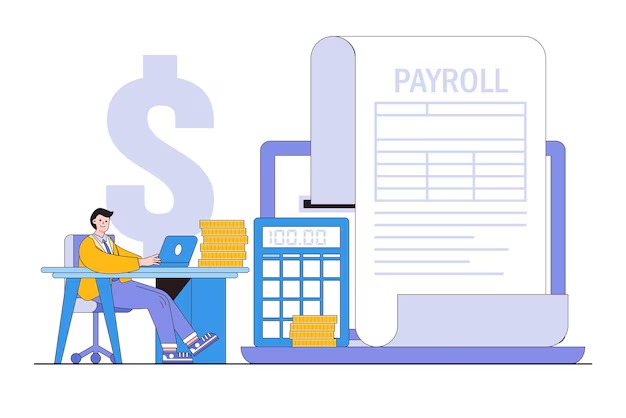Managing payroll in India involves more than just disbursing salaries. Employers must comply with statutory regulations, ensure proper deductions, and fulfill tax obligations. Failing to do so can lead to legal issues and penalties. This guide will help businesses understand payroll deductions and compliance in India, ensuring they remain compliant while effectively managing employee salaries.
Key Payroll Deductions in India
Payroll deductions in India fall under two categories: statutory deductions and voluntary deductions.
1. Statutory Deductions
These deductions are legally mandated and must be complied with by employers.
a) Provident Fund (PF)
- The Employees’ Provident Fund (EPF) is applicable to organizations with 20 or more employees.
- Employees contribute 12% of their basic salary + dearness allowance (DA) towards EPF, matched by the employer.
- Employers also contribute towards Employees’ Pension Scheme (EPS).
- Timely compliance ensures employees receive retirement benefits and financial security.
b) Employee State Insurance (ESI)
- Applicable to employees earning up to ₹21,000 per month.
- Employees contribute 0.75%, and employers contribute 3.25% of the gross salary.
- ESI provides coverage for medical, sickness, maternity, and disability benefits.
- Employers must register under ESIC and ensure timely premium deposits.
c) Professional Tax (PT)
- Levied by state governments, PT varies across states.
- Deducted monthly from employees’ salaries and deposited with the respective state government.
- Employers must check state-specific regulations for PT rates and compliance.
d) Income Tax (TDS – Tax Deducted at Source)
- Employers deduct TDS based on employee earnings and applicable tax slabs.
- Employees must declare their investments to optimize tax deductions under sections like 80C, 80D, and 10(14) of the Income Tax Act.
- Employers must issue Form 16 for tax filing purposes.
e) Labour Welfare Fund (LWF)
- Applicable in certain states.
- A small contribution from both employer and employee is deducted to support labor welfare initiatives.
- Employers must check state-specific LWF rates and contribute accordingly.
2. Voluntary Deductions
These deductions depend on employee preference and company policies.
a) Health and Life Insurance Premiums
- Employers may offer group health/life insurance with a portion deducted from employees’ salaries.
- This ensures financial security for employees and their families.
b) Loans and Advances
- If an employee has taken a loan or salary advance, monthly deductions are made.
- Employers must maintain transparent repayment records.
c) Retirement Contributions
- Employees can opt for Voluntary Provident Fund (VPF), which is an additional contribution beyond the mandatory 12% PF.
- Investing in VPF helps employees secure their post-retirement life.
d) Other Deductions
- Meal coupons (e.g., Sodexo), corporate memberships, or savings schemes may also be deducted.
- Employers must clearly communicate deduction policies to employees.
Payroll Compliance in India
Ensuring compliance with payroll laws is crucial for businesses. Below are the key compliance aspects.
1. Adherence to Labour Laws
Employers must follow laws such as:
- Payment of Wages Act, 1936 – Ensures timely salary disbursement.
- Minimum Wages Act, 1948 – Sets minimum wages for workers.
- Shops and Establishment Act – Governs employee working conditions.
2. Provident Fund (PF) Compliance
- Employers must register with EPFO.
- Monthly contributions must be deposited by the 15th of the following month.
- Employee UAN (Universal Account Number) must be linked for seamless PF management.
3. ESI Compliance
- Employers must register with ESIC and ensure timely deposits.
- ESI returns must be filed every six months.
- Employees should have ESI cards for medical benefits.
4. TDS Compliance
- Employers must deduct TDS monthly and deposit it by the 7th of the next month.
- Quarterly TDS returns must be filed.
- Employees must receive Form 16 annually.
5. Professional Tax (PT) Compliance
- PT must be deducted and deposited as per state-specific timelines.
- Non-compliance may lead to penalties.
6. Payroll Record Maintenance
Employers must maintain:
- Salary registers
- PF and ESI records
- TDS challans and returns
- Employee attendance and leave records
- Proper documentation prevents disputes and ensures regulatory compliance.
Challenges in Payroll Compliance
Payroll compliance in India can be complex due to:
- Frequent regulatory updates
- Variations in state-specific laws
- Managing multiple statutory deductions
- Ensuring accurate payroll calculations
How to Overcome These Challenges?
- Use Payroll Software: Automates compliance and calculations.
- Stay Updated: Regularly check government updates.
- Consult Experts: Hire payroll professionals or HR consultants.
- Conduct Regular Audits: Ensure payroll processes align with legal requirements.
Conclusion
Payroll deductions and compliance in India require a structured approach to ensure adherence to laws and smooth salary processing. Employers must stay informed about statutory requirements, deadlines, and deductions to avoid penalties and legal complications. Investing in payroll management solutions can simplify compliance and enhance efficiency.
By understanding these aspects, businesses can ensure a legally compliant and employee-friendly payroll system. Regularly updating payroll processes, using automated tools, and consulting experts can help businesses stay compliant and efficient.
Are you looking for payroll solutions to simplify compliance? Get in touch with payroll experts to ensure hassle-free payroll management for your business!

